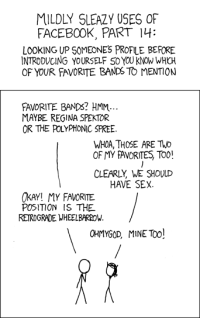
Prevalent advertising portraying an inaccurate proportion of humanity as too attractive is blamed for misinforming people on the value of attractiveness.
Unattractive females, both self rated and judged externally, find features of male physical attractiveness, such as facial masculinity and voice, less appealing than attractive females do.
This study suggests such behavior is to avoid wasting effort on guys who won’t be interested. That hypothesis beats the others because women’s preferences adapt fast to circumstances. In the study women saw pictures of other women who were more or less attractive. As their own perceived attractiveness went down or up accordingly, their preferences for male facial masculinity did too.
Do physically unattractive people actually believe one another to be hot? This study suggests not:
When less attractive people accept less attractive
dates, do they persuade themselves that the people they
choose to date are more physically attractive than others
perceive them to be? Our analysis of data from the popular
Web site HOTorNOT.com suggests that this is not the
case: Less attractive people do not delude themselves into
thinking that their dates are more physically attractive
than others perceive them to be.
When less attractive people accept less attractive dates, do they persuade themselves that the people they choose to date are more physically attractive than others perceive them to be? Our analysis of data from the popular Web site HOTorNOT.com suggests that this is not the case…
Instead, same study suggests that less attractive people claim to put greater weight on other characteristics than attractiveness in mate choice:
..participants’ own attractiveness was significantly correlated with their standardized weights for physical attractiveness (r 5 .60, prep 5 .98), but negatively correlated with their standardized weights for sense of humor (r 5 �.44, prep 5 .91). Overall, these results suggest that more attractive people and less attractive people consider different criteria in date selection: Less attractive people tend to place less weight on physical attractiveness and greater weight on non-attractiveness-related attributes such as sense of humor.
Together these pieces of research suggests that encouraging everyone to feel less attractive should decrease the adoration people (at least claim to) direct at the best looking of us and bring about more appreciation of traits which we consider more virtuous to care about. One method for achieving this, similar to the one shown effective in an above study, would be to surround everyone with pictures of super-attractive models. The advertising industry is making steady progress on this front, yet is blamed for encouraging society to care about looks. Would we be even more shallow without this stream of superior gorgeousness?



